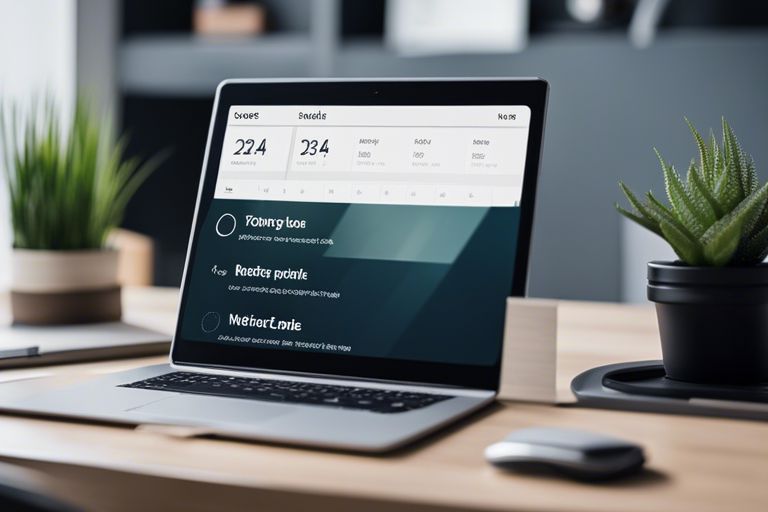Delegating and outsourcing tasks can significantly enhance your productivity and free up your time to focus on more important aspects of your business. When you have a lot on your plate, delegating allows you to allocate tasks to others, while outsourcing enables you to pass on certain responsibilities to external experts. By doing so, you can maximize your productivity and efficiency. In this blog post, we will discuss the various strategies and techniques for effectively delegating and outsourcing tasks to optimize your workflow and achieve greater success in your endeavors.
Recognizing Tasks to Delegate or Outsource
Your ability to delegate and outsource tasks effectively is key to maximizing productivity. Recognizing which tasks to delegate or outsource is an important step in this process. By identifying your strategic core activities and distinguishing between high-value and low-value tasks, you can streamline your workflow and focus on activities that truly drive your success.
Identifying Your Strategic Core Activities
When looking to delegate or outsource tasks, it’s essential to first identify your strategic core activities. These are the tasks that directly contribute to your business or personal objectives. By focusing on these activities, you can maximize your impact and productivity. Take the time to evaluate the tasks you perform on a regular basis and determine which ones align most closely with your overarching goals. By doing so, you can prioritize these activities and confidently delegate or outsource non-core tasks to free up your time and energy.
Distinguishing between High-Value and Low-Value Tasks
Another crucial step in recognizing tasks to delegate or outsource is distinguishing between high-value and low-value tasks. High-value tasks are those that have a significant impact on your business or personal growth, while low-value tasks are often repetitive or administrative in nature. By focusing on high-value tasks, you can make the most of your time and talents, leaving lower-value tasks to be handled by others. This allows you to enhance your productivity and overall effectiveness, ultimately leading to greater success in your endeavors.
How to Delegate Effectively
Some tasks are better handled by others, allowing you to focus on your core responsibilities and maximize productivity. However, delegating effectively is an art that requires careful planning, clear communication, and efficient follow-up. Here are some key strategies to help you delegate tasks effectively and maximize your productivity.
Choosing the Right People for the Job
When delegating tasks, it’s crucial to choose the right people for the job. Consider their skills, experience, and workload before assigning responsibilities. Be mindful of their strengths and weaknesses and identify the tasks that align with their abilities. By delegating tasks to individuals who are well-suited for the job, you ensure that the work is completed efficiently and with high quality.
Communicating Clearly and Setting Expectations
Clear communication is essential when delegating tasks. You need to clearly outline the expectations, deadlines, and desired outcomes for the delegated responsibilities. Clearly define the scope of the task and provide any necessary resources or information for successful completion. By setting clear expectations, you minimize the risk of misunderstandings and ensure that the delegated tasks align with your goals.
Establishing a Follow-up and Feedback System
Establishing a follow-up and feedback system is crucial to ensure that the delegated tasks are progressing as planned. Regularly check in with the individuals to whom you have delegated tasks, and offer support or guidance as needed. Encourage open communication and provide constructive feedback to help them improve their performance. By establishing a follow-up and feedback system, you can ensure that the tasks are completed efficiently and effectively.
Outsourcing Strategies
To maximize productivity through outsourcing, you need to have a clear strategy in place. This involves identifying which tasks are suitable for outsourcing, finding reliable partners, and managing those relationships effectively.
Finding Reliable Outsourcing Partners
When it comes to finding reliable outsourcing partners, thorough research is key. Look for companies or individuals with a proven track record and positive reviews from previous clients. References and testimonials can provide valuable insight into the quality of work and reliability of potential partners. Additionally, consider outsourcing to locations known for their expertise in a particular field to leverage specialized skills.
Managing Outsourced Relationships for Success
Managing outsourced relationships requires effective communication and clearly defined expectations. Set clear objectives, deadlines, and performance metrics to ensure accountability. Regular check-ins and updates will help you stay on top of progress and address any issues promptly. Building trust and maintaining a positive working relationship with your outsourcing partners is essential for long-term success.

Tools and Resources to Facilitate Delegation and Outsourcing
After understanding the importance of delegation and outsourcing to maximize productivity, it is essential to have the right tools and resources in place to facilitate the process. With the help of technology solutions for task management and best practices for keeping track of delegated and outsourced tasks, you can streamline your workflow and ensure efficient results.
Technology Solutions for Task Management
When it comes to managing tasks and projects, there are a variety of technology solutions available to help you stay organized and on track. Tools such as project management software, task management apps, and communication platforms can enhance collaboration and increase transparency within your team. These technologies allow you to assign and track tasks easily, set deadlines, and monitor progress in real time. By centralizing all your tasks in one place, you can effectively manage your workload and improve overall productivity.
Best Practices for Keeping Track of Delegated and Outsourced Tasks
Once you have delegated or outsourced tasks, it is crucial to have best practices in place for keeping track of them. This includes establishing clear communication channels, setting expectations and deadlines, and implementing regular check-ins to assess progress. Using tools such as task lists, calendars, and progress reports can help you stay informed about the status of delegated tasks and ensure that they are completed on time and to the desired standard. By following these best practices, you can minimize the risk of miscommunication and maximize accountability among your team members and external contractors.

Conclusion
Upon reflecting on the strategies for delegating and outsourcing tasks to maximize productivity, you can now see the importance of effective time management and resource allocation. By identifying your strengths and weaknesses, you can assign tasks to the appropriate team members or freelancers, allowing you to focus on high-priority activities. Furthermore, establishing clear communication, setting expectations, and providing adequate support are crucial for successful delegation and outsourcing. By implementing these techniques, you can streamline your workflow, increase efficiency, and ultimately achieve your goals more effectively. Remember, the key to successful delegation and outsourcing lies in understanding your own limitations and leveraging the skills and expertise of others to achieve optimum productivity.








